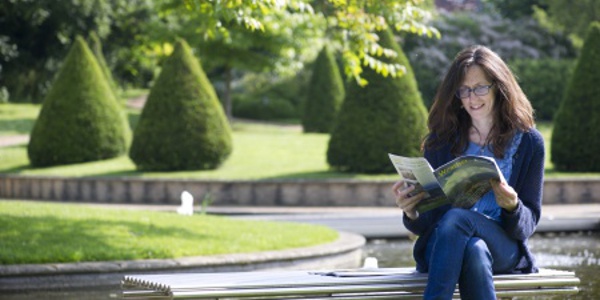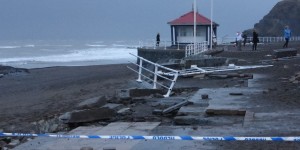
January 29, 2014, by Georgina
Introducing our new British Weather Extremes project
Extreme weather in the news (again)
In the past couple of months, the British weather has once again hit the headlines. Communities across the UK have been battered by storms, gales and floods, bringing down trees, causing significant property damage, devastating iconic sea fronts and contributing to travel chaos. This week we have also seen reports of mini tornadoes in parts of southern and central England (lifting cats high into the air!) and more unusual weather is inevitably on the way.
So what’s new?
Such events are far from unprecedented as we will be demonstrating through our new project on British weather extremes. We are a team of academics based at the Universities of Nottingham (Georgina Endfield, Lucy Veale), Aberystwyth (Sarah Davies, Cerys Jones and Marie Jeanne Royer), Glasgow (Simon Naylor) and Liverpool (Neil Macdonald, James Bowen) with shared research interests in extreme and unusual weather. Over the next three years, through our AHRC funded project, we will be drawing on a wide range of historical records and oral history approaches to investigate the timing and societal implications of all kinds of extreme weather events dating back to the late seventeenth century .
The construction of regionally specific climatic histories and records of extreme weather events, and investigations of the historical records and memories charting responses to these events, are a crucial component of any research that seeks to understand the nature of events that might take place in the future. These histories are also important for assessing how different communities in different contexts might be affected by, comprehend and respond to future events.
Case studies and approaches
We’ll be focusing on a series of case study regions across the UK all of which are recognised to be vulnerable to climate change and extreme events:
- North, West and Southwest Wales, specifically isolated rural communities, small coastal communities, upland farming areas at risk from flooding, drought and extreme winters
- The East Anglia coast and northwest Scotland, regions that have been identified as being at risk of flooding and storm events
- Central England region, considered to be vulnerable to flooding, water scarcity and drought
- Southwest England, projected to suffer most acutely from storm events, flooding as well as heat waves.
Our choice of case study regions will allow us to explore the impacts and implications of extreme weather in a set of contrasting cultural and environmental contexts and to investigate the degree to which context influences vulnerability and relative adaptability.
Another dimension of the work will see us investigating how particular events have become inscribed into the cultural fabric and social memory of selected local communities within the case study regions. We will also be looking at how the recording of these events has changed overtime and is still changing.
We’ll be providing regular updates on our progress through these blog posts and our Weather extremes website and in due course will be producing a publicly accessible and searchable data base of extreme weather events for our case study regions. In the meantime, we’ll be keeping a watchful eye on our predictably, unpredictable weather.


Looking forward to discovering more in the archives and hoping to find more tales of tornadoes!